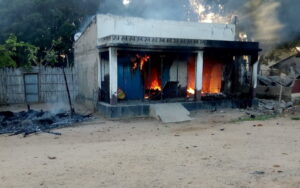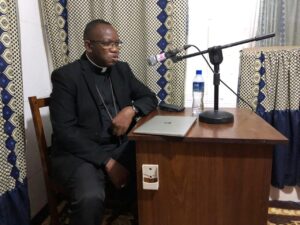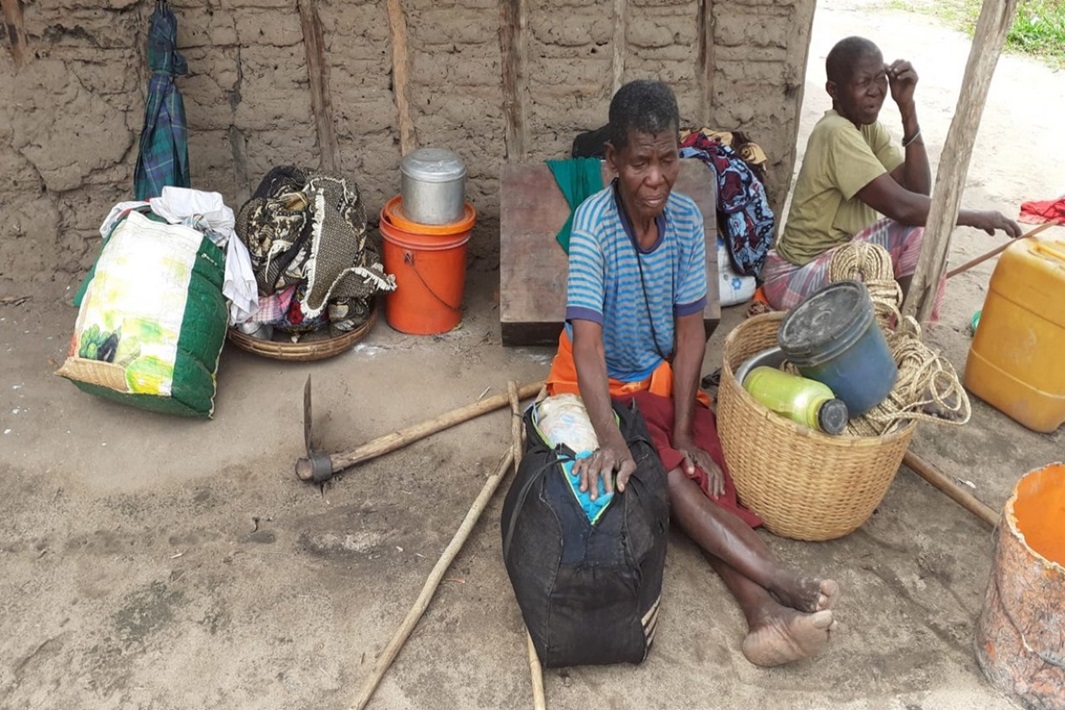By Paschal Norbert
CABO DELGADO, MARCH 15, 2024 (CISA) – Rt Rev António Juliasse Ferreira Sandramo, bishop of the Catholic Diocese of Pemba, northern Mozambique, has painted a stark image of the dire humanitarian situation of the population in the Cabo Delgado province since the onset of the increased cases of insecurity and violence against civilians.
In an interview with the pontifical foundation Aid to the Church in Need (CAN, the bishop noted “Around a dozen villages, some of them heavily populated, were targeted with the destruction of houses and institutions. In those villages, all the Christian chapels were destroyed. The high point until now was the attack on Mazeze, in the administrative posts of the district of Chiúre, where many state-owned public and social infrastructures, were destroyed. Our mission, which provided so much support in the region was also destroyed.”
Recent reports from Cabo Delgado, Mozambique’s northernmost province, with enormous economic potential including natural gas reserves that could make it a leading natural gas exporter and a coastline attractive to tourism, indicate that the conflict that began in 2017 is far from over. Cases of beheadings, kidnappings, and ambushes are still being reported; and after seizing a strategic village last month, fighters believed to be jihadists killed more than 20 soldiers in an attack on February 9.
Bishop Juliasse said the people “are fleeing from villages that have been reduced to ashes, and those whose villages might be next in line are also running. The only thing they are sure of is the starting point… They are searching for a safe space; I don’t know where they will find it. Perhaps they will have to settle for the least unsafe.”
The prelate who has been at the forefront in calling the attention of the international community to the conflict in Cabo Delgado stated that people are at a point of hopelessness. The violence is raging and the jihadists have employed even more brutal ways to attack the civilian population.
“They carry only what they can, in a bundle on their heads, or on the family bicycle, that’s all they have left. Hunger, thirst and disease will soon follow”, the bishop warns.
Bishop Juliasse highlights the unfortunate story of Tina, a niece to one of the diocesan staff who while also fleeing the violence came to the secretariat with only her newborn baby. He says “Afflicted by the heat and the dust, she drank some water that she came across, but she got diarrhoea and started vomiting, and she died. The baby was left without a mother.”

The local ordinary of Pemba maintains that the real motive of the jihadists is currently unknown even as their methods become brutal and their reach expands. He points out that the greatest danger for the population at this time is inaction by the government and international actors.
“Their greatest risk is to become forgotten faces, drowned out by the other wars in the world. We cannot just sit by and do nothing,” says Bishop Juliasse.
According to ACAPS, an independent analysis provider, the Cabo Delgado conflict has its roots in the pre-existing socioeconomic marginalization of northern Mozambique, political and religious ideology, and inequalities worsened by the discovery of minerals and natural gas deposits in the region, which has threatened the livelihood of the local population.
The insecurity in the province is also due to the Al-Shabaab deliberately targeting humanitarians and humanitarian facilities. This coupled with limited financial resources, and bureaucratic obstacles limits humanitarian organizations’ ability to reach people in need.
